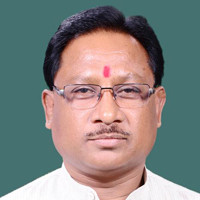Bastar Junction के पत्रकार की हत्या किस ख़बर के कारण हुई | Journalist Mukesh Chandrakar
Journalist Mukesh Chandrakar went missing on the evening of January 1. Before disappearing, he informed a fellow journalist that he had received a call from the brother of a local contractor who wanted to meet him. By 12:30 AM, his phone was switched off. When he did not return home the next day, his brother, Yukesh Chandrakar, filed a missing person complaint on January 2. The IG of Bastar set up a special investigation team. Mukesh's last mobile location was traced to the house of a local contractor, Suresh Chandrakar, in Chhattnapara Colony. When police searched the premises, they discovered a recently sealed concrete septic tank. Breaking open the tank, they found Mukesh's body with multiple injury marks on his head and back. The police detained contractor Suresh Chandrakar and several others for questioning. According to a report by The Hindu, police suspect this murder is linked to Mukesh Chandrakar's recent report exposing irregularities in a district road construction project. The contractor, Suresh Chandrakar, is alleged to be involved. Journalist Amit Mishra, writing for TV9hindi.com, claimed Mukesh was killed because he published a report about the substandard construction of a road, causing significant financial losses to the contractor. The road, initially estimated at ₹50 crores, was retendered and built for over ₹100 crores. Mukesh had prepared this investigative report for a TV channel, leading to major backlash against the contractor. Mukesh Chandrakar, a 28-year-old journalist, is no longer with us—we are forced to use the word was because he was brutally murdered. And the reason? Likely his fearless journalism. Why is Mukesh no more? What role do mainstream media outlets play in such tragedies? Is practicing journalism a crime today? In this episode of News that Matters, we explore these critical questions surrounding Mukesh Chandrakar’s death and the state of press freedom in India.



